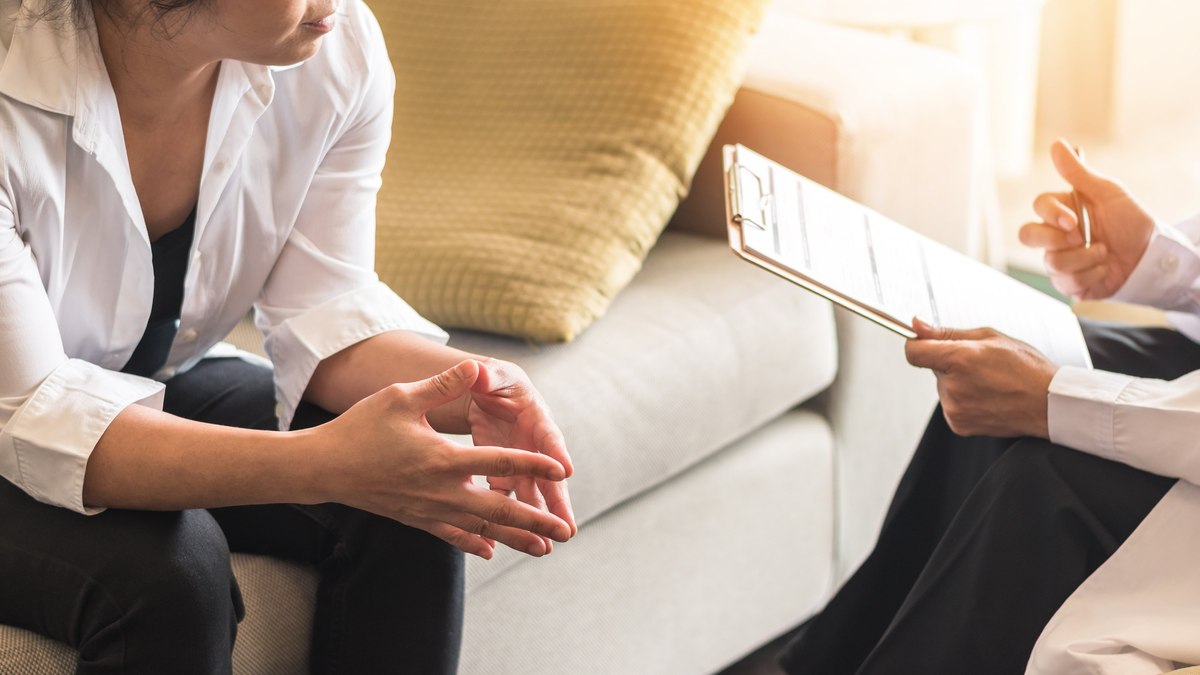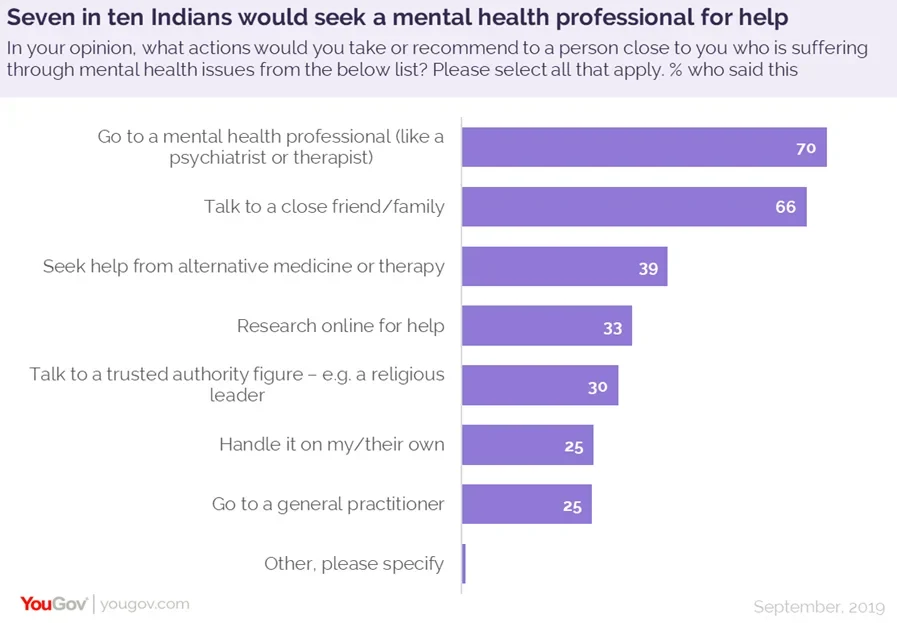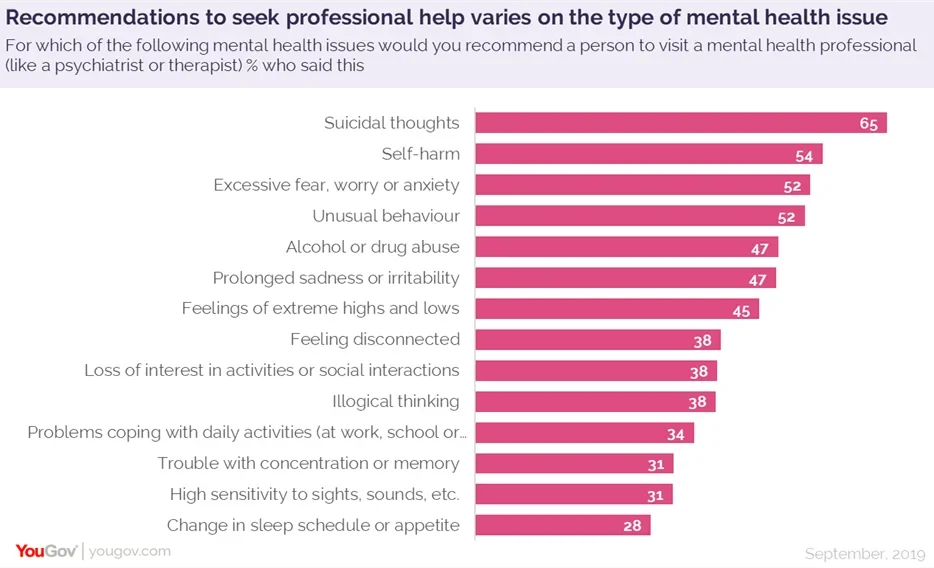
Most Indians would seek professional help for mental health issues but stigma still exists for many
Women are more likely than men to seek expert help while men tend to be more embarrassed to address their mental health issues
Most Indians would seek professional help if they or someone they knew was suffering from mental health problems, however, the proportion recommending expert assistance varies markedly depending on the type of issue, new research from YouGov reveals.
The data shows women are more likely than men to seek professional help (76% vs 63%). Compared to all groups, even Gen X is more likely to do so (79%).

Apart from this, two-third (66%) would talk to a family member or close friend regarding this. Two in five (39%) would take alternative medicine or therapy while a third would either research online for help (33%) or talk to a trusted authority figure, like a religious leader (30%). A quarter also said they would either go a general practitioner or handle it on their own (25%).
However, the proportion who would recommend someone to seek professional help varies greatly depending on the type of mental health issue.
The study finds that majorities would suggest taking expert assistance for mental health issues such as having suicidal thoughts (65%), self-harm (54%), anxiety issues (52%) and unusual behaviour (52%). Fewer than half, though, would recommend professional help when it came to alcohol or drug abuse (47%), prolonged sadness (47%) and feelings of extreme highs and lows (45%). In all these cases, women are more likely than men to endorse expert assistance.

Even though there is a willingness to reach out to professionals for help in many circumstances, YouGov’s research suggests that a stigma exists around mental illness in India. Almost half (47%) say that they would not feel comfortable talking about their mental health if they were to struggle with it in the future. Similarly, two in five said they would not be comfortable in going to a mental health professional (43%), or talking to someone who has mental issues (40%) and more than a third (37%) would be embarrassed to deal with their own issues.
The data shows that men are more likely than women to be embarrassed about addressing their mental issues (52% of men vs 41% of women) and also less willing to seek professional help (50% of men vs 37% of women).
Three in five think that the most effective way to eliminate this stigma would be by talking openly about mental health treatments as one would discuss physical health treatments (62%), by promoting mental wellness through well-being activities in families, schools, and communities (62%) and by normalizing mental health conversations amongst people around us (60%).
Data collected online by YouGov Omnibus among around 1011 respondents in India in September 2019 using YouGov’s panel of over 6 million people worldwide. Data is representative of the adult online population in the country